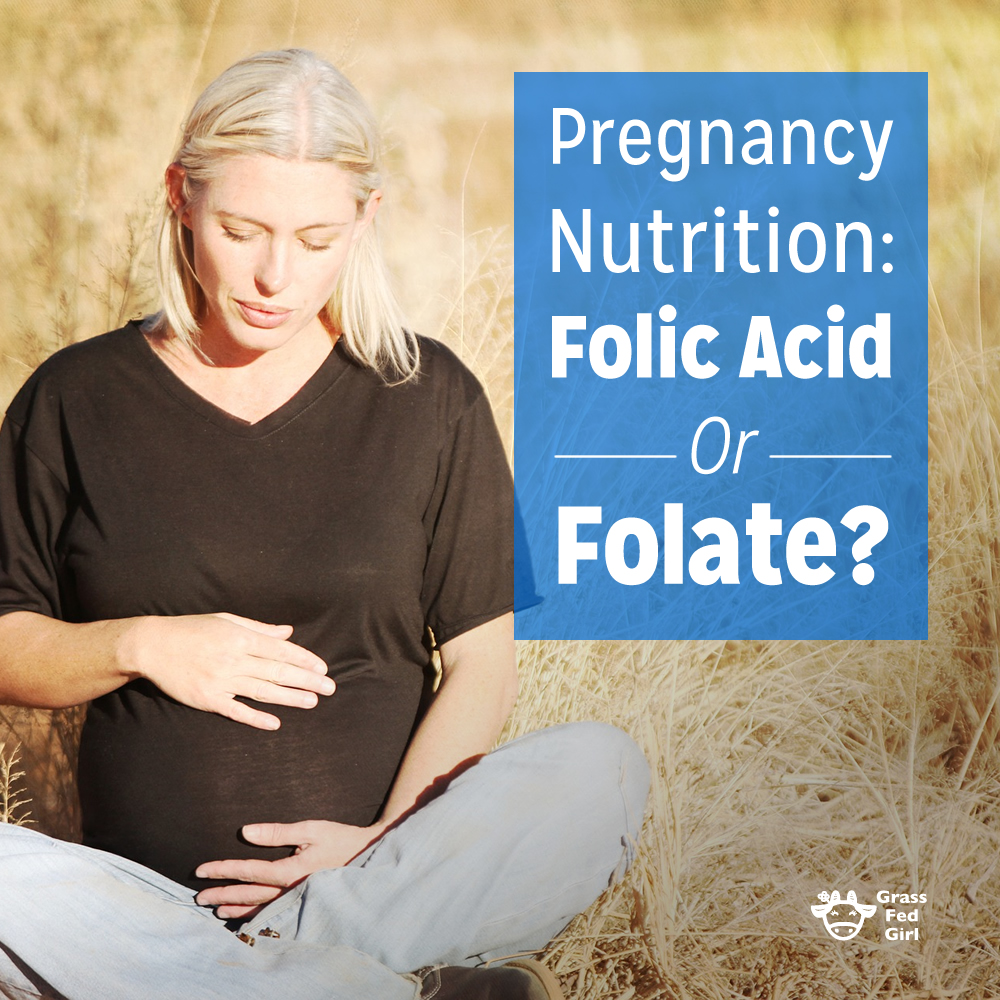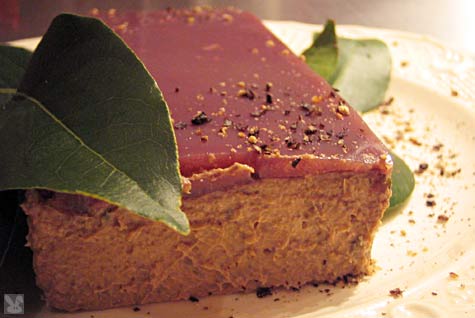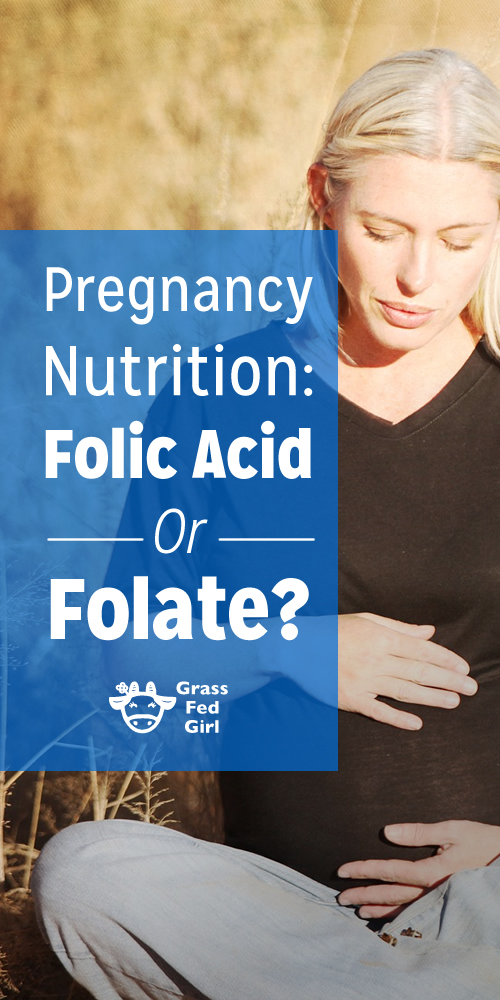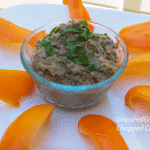
Many of my clients ask me about prenatal/ pregnancy nutrition and a confusing issue that often comes up is the difference between folic acid and folate. As usual traditional wisdom rings true and they can’t make something in a lab that is as good as what is provided by nature. I hope this post clears up the confusion and I even explain how folic acid can be dangerous.

Pregnancy Nutrition: Folic Acid Or Folate?
What is folate?
Folate is a B-complex vitamin known for it’s importance in pregnancy and prevention of birth defects. Adequate folate intake of 500-600 mcg per day helps the proper formation of the babies brain and spinal cord. Folate is a water soluble vitamin meaning that our body does not store it and we need to eat it everyday to be replenished. B vitamins help support adrenal function (think stress management), a healthy nervous system, and a fine tuned metabolism (weight loss and energy).
Mothers with inadequate supplies of folate are at risk of giving birth to infants with neural tube defects. Beginning in the early 1980’s, researchers began to successfully use folic acid supplementation to reduce the risk of nervous system problems in newborn infants. Folic acid is a synthetic form of the active methyltetrahydrofolate. Folate on the other hand is naturally found in whole food sources (also called tetrahydrofolate).
The problem with folic acid:
Folic Acid is a synthetic supplement that was mandated to be in certain foods (like bread and cereal) in 1998, after it was shown to be protective against birth defects. Unfortunately folic acid is a synthetic chemical that is not found in nature and it has to be changed in the body through several steps before it becomes a form of folate the body needs and can utilize. In prenatal vitamins folic acid has to change to the active folates and in most people there is a poor conversion leading to a buildup of unmetabolized folic acid. Folic acid has been shown in studies to increase the risk of several forms of cancer and increased b-12 deficiency which prevents dementia.
Always choose food first:
Excellent sources of folate from food include:
- calf’s (veal) liver
- chicken liver
- duck liver
Just 1/2 cup of liver provides almost 600 mcg and 140% of RDI
Always get the best sources of meat you can find/afford: grass fed cows and or organic soy free pastured chickens.
Liver is also a good source of Thiamin, Zinc, Copper and Manganese, and a very good source of Protein, Vitamin A, Vitamin C, Riboflavin, Niacin, Vitamin B6, Vitamin B12, Pantothenic Acid, Iron, Phosphorus and Selenium.
Good sources of folate from food:
- romaine lettuce

Liver is a great source of Folate
- spinach
- asparagus
- turnip greens
- mustard greens
- parsley
- collard greens
- broccoli
- cauliflower
- beets
- summer squash
- papaya
- strawberries
- green beans
- sea vegetables
- cabbage
- bell peppers
- Brussels sprouts
- leeks
- fennel
- tomatoes
Amount of folate provided by a few common foods:
1 cup of cooked greens only provides 14 mcg
1/2 cup sunflower seeds has 200 mcg
1/2 cup cooked beets has 68 mcg
1 cup of cooked broccoli 160 mcg
Since a woman needs 600-1200 mcg of folate per day in a prenatal/pregnancy period it would be pretty difficult to get from non-animal sourced foods. Another issue is that people may not absorb all the folate in food either due to compromised digestion which is very common.
Recipe: See my duck liver pate recipe here:
Folate Action Steps:
Women who are planning on becoming pregnant should consume between 800 and 1200 mcg of folate per day for several months before conception. Unless you’re consuming poultry or calf’s liver and substantial amounts of leafy greens on a regular basis, it’s difficult get enough from a healthy ancestral diet. If you’re pregnant supplementing with 600-800 mcg of folate per day like Solgar – Folate (Metafolin)800 Mcg, 100 tablets is a good idea. Make sure the brand you choose has folates and not folic acid on the label. Several others that have 5-MTHF (an active type of folate) are Designs for Health, Thorne, and Pure Encapsulations.
A good prenatal vitamin to use is Pure Encapsulations Nutrient 950 with Vitamin K – 180 capsules.
Sources:
chriskresser.com/folate-vs-folic-acid
www.whfoods.com
nutritiondata.self.com




